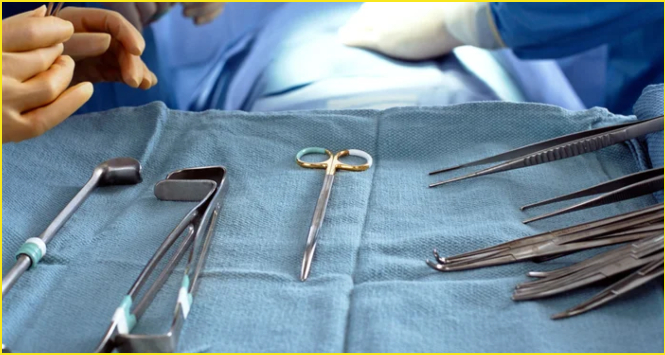A deeply troubling video posted by OB-GYN Dr. Ruth Olumba (@i.am.dr.ruthie) is gaining traction online for shedding light on a harrowing and underreported issue in medicine: obstetrical violence against Black women.
In the now-viral post, Dr. Olumba and another healthcare provider recount first-hand experiences of patients being subjected to non-consensual and unnecessary medical procedures—with race playing a chilling role in how those patients were treated.
The video begins with a white physician recalling a moment from her OB rotation in medical school between 1996 and 2000. She describes a Black patient—on her fourth or fifth delivery—who gave birth without complication. However, what followed has shocked many online.
“After she delivered, the faculty looked at the resident and said, ‘Have you repaired a fourth-degree laceration yet?’ And the resident said no. So the faculty got a pair of scissors, put one blade in the vagina and one in the rectum—and he cut,” she says fighting back tears, visibly disturbed.
The woman makes it clear: the patient had not sustained a fourth-degree tear naturally. It was deliberately inflicted by a supervising physician as a training exercise—with no medical necessity, no consent, and no accountability.
A Different Ending, Thanks to a Black Doctor’s Intervention

Dr. Ruth Olumba, a board-certified OB-GYN with a Master of Public Health, responded with her own story from her residency in 2014. At an outside hospital rotation, a faculty member attempted to replicate a similar act—asking Dr. Olumba if she had experience repairing severe perineal lacerations. She responded honestly: no.
“He brought out scissors,” she recalls, the implication clear. But unlike the earlier incident, Dr. Olumba had an advocate—a senior Black resident who intervened before anything could happen.
“She literally held his hand and said, ‘You will not do that.’”
That act of resistance saved a patient from harm and became a defining moment in Dr. Olumba’s training. She would go on to learn how to repair such injuries using beef tongue, not a human body, as she puts it.
Advocacy and Representation Matter
Both stories highlight an unsettling legacy in medicine: Black patients—especially Black women—have long faced disproportionate levels of disrespect, dehumanization, and medical experimentation.
The viral clip has sparked conversations about how racism and bias in medical education can translate into lasting harm for patients.
Dr. Olumba spoke strongly in support of the power of representation and solidarity in medicine.
“You have no idea how important it is to have Black medical students, residents, doctors advocating for you,” she says. “Her outcome was different. My outcome had never happened because [my chief] was bold enough to stop it.”
A Call for Accountability in Medical Training
As this video circulates, it is prompting urgent calls for ethical reform in medical education, including the need for informed consent, trauma-informed care, and accountability for faculty who abuse their power.
Users across social platforms expressed horror and heartbreak, with many demanding investigations into similar practices in teaching hospitals. Others called for greater protection of vulnerable patients—particularly Black women who already face alarmingly high maternal mortality rates in the U.S.
